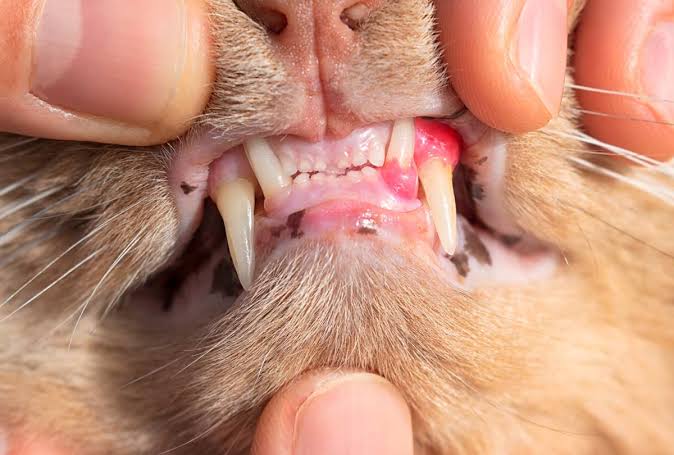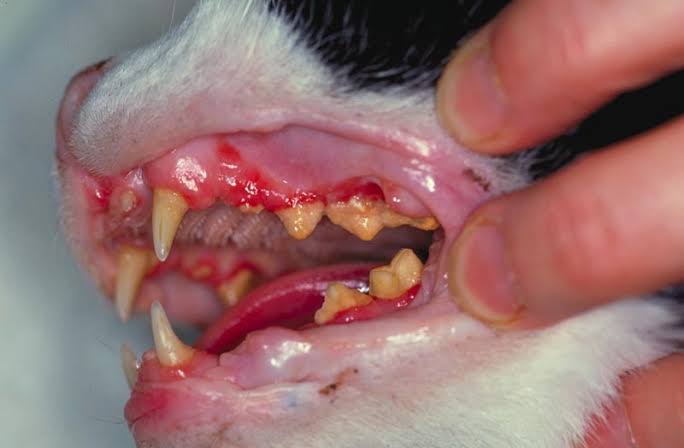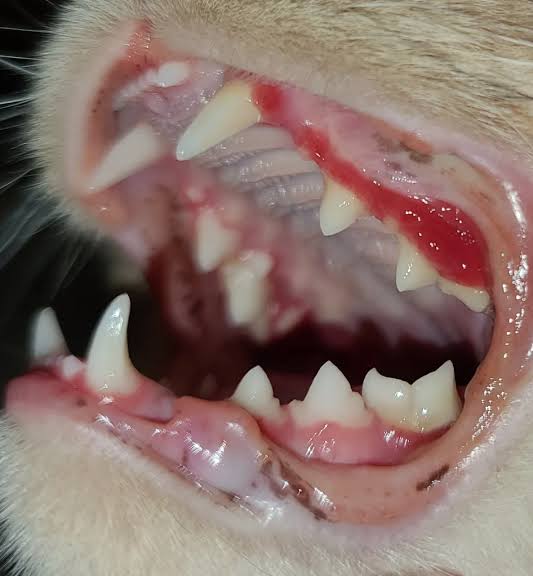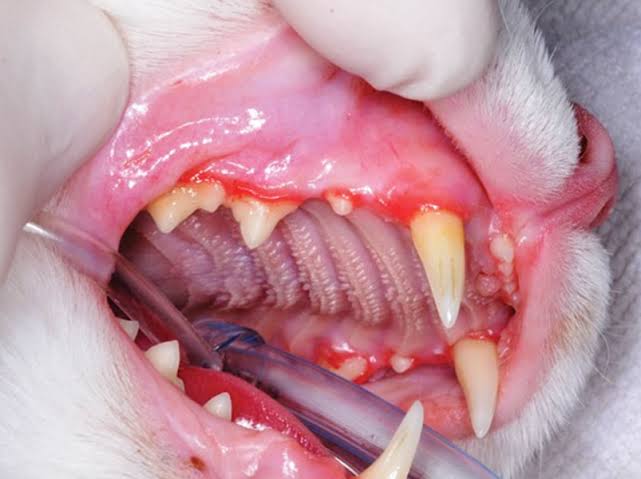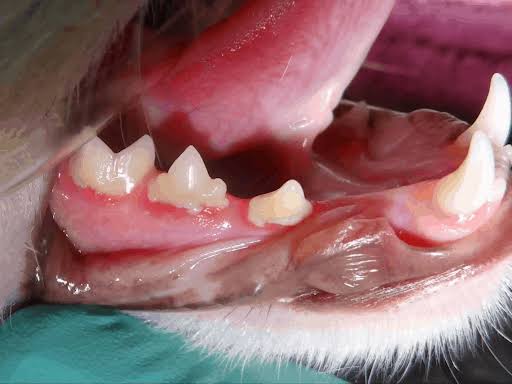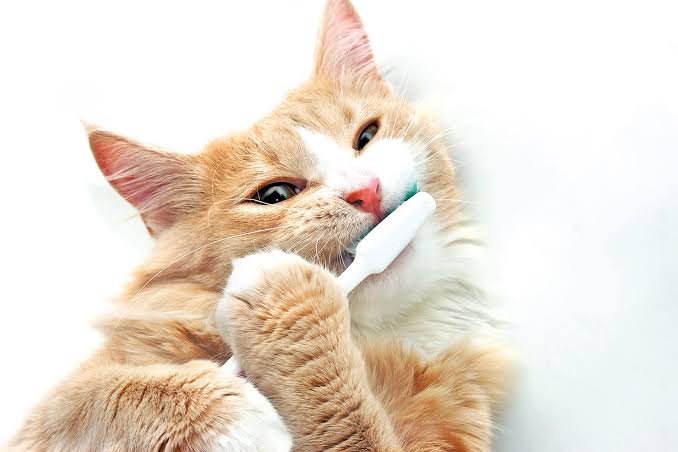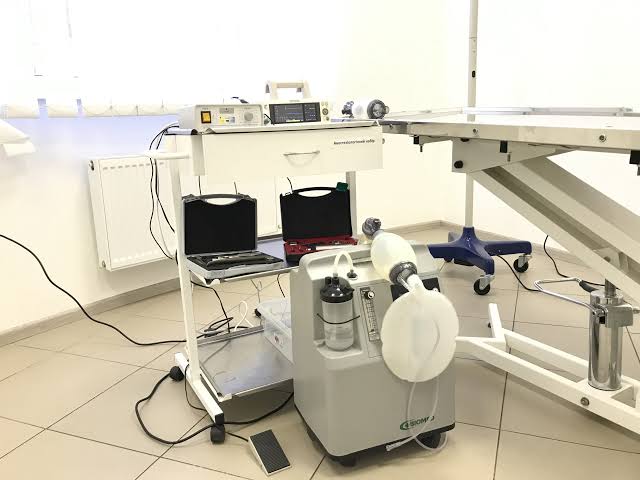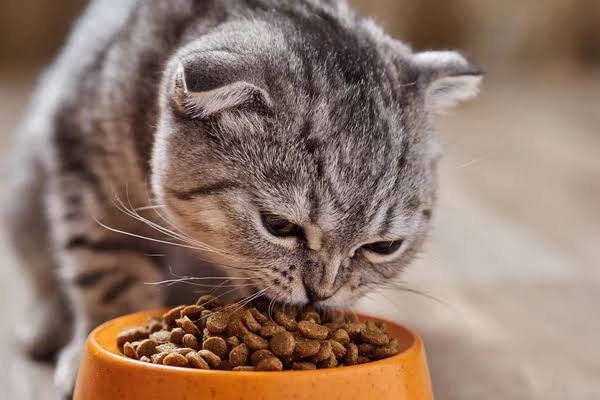Gingivitis in Cats: Causes, Symptoms, Treatment
Stomatitis vs. Gingivitis in Cats
| Condition | Description | Similarities | Differences |
|---|---|---|---|
| Stomatitis | Severe inflammation of the entire mouth, including gums, tongue, and throat. |
- Both cause oral inflammation. - Both may lead to pain and difficulty eating. - Both require veterinary treatment. - Both may be linked to infections or immune system issues. |
- More severe than gingivitis. - Affects the entire mouth, not just the gums. - Often requires tooth extraction in severe cases. - More commonly linked to immune system disorders. |
| Gingivitis | Inflammation of the gums, usually caused by plaque buildup. |
- Milder condition, affecting only the gums. - Can often be treated with dental hygiene and plaque control. - Early stage of periodontal disease. |
What is Gingivitis in Cats
Dental plaque forms a biofilm that adheres tightly to the tooth surface, helping bacteria to move deeper. Gradually, they become more numerous, which leads to chronic gingivitis, and later to the defeat of deeper structures - periodontitis.

Causes and Symptoms of Gingivitis in Cats
- Plasmacytic-Lymphocytic Gingivitis - a more severe form of inflammatory gum disease. It causes severe acute pain, the occurrence of ulcers on the soft palate or oropharynx. As a result - a cat's appetite decreases, she refuses to eat or loses weight. Establish the cause of plasmacytic-lymphocytic gingivitis is not possible. Furthermore, veterinarians believe that it is a form of gingivitis that can eventually lead to serious diseases such as the rhinotracheitis, calicivirus cats or distemper (panleukopenia);
- Dental Gingivitis occurs after raid on teeth and canines of pet. It should be remembered that the plaque is caused by settling of bacteria and food particles near the compound of teeth and gums. First on the teeth is formed faint patina, which each time becoming more dense. Not removed plaque is hardens and becomes dental tartar. It is easy to see in those places where the tooth is connected to the gum. Usually tartar has a distinctive yellow color that is different from the natural enamel. After some time, there is a reddening of the gums, which is the first sign of developing gingivitis.
Types of Gingivitis in Cats: Causes, Symptoms, and Treatment Methods
Warning: The following images may be disturbing to some viewers. You can choose to view or hide them by clicking the buttons below.
| Type of Gingivitis | Causes | Symptoms | Treatment | Image |
|---|---|---|---|---|
| Dental Gingivitis | Accumulation of plaque and tartar, poor dental hygiene | Red, inflamed gums, bad breath, difficulty eating | Regular dental cleaning, professional scaling, improved oral hygiene | |
| Plasmacytic-Lymphocytic Gingivitis | Viral infections (e.g., FIV, FeLV), immune system dysfunction | Severe gum inflammation, bleeding, sores, painful mouth | Antibiotics, immunomodulators, corticosteroids | |
| Juvenile Gingivitis | Teething process in kittens, excessive plaque accumulation | Red, swollen gums, bad breath, difficulty eating | Regular dental cleaning, monitoring teething progress | |
| Chronic Ulcerative Gingivitis | Autoimmune disorders, viral infections | Painful ulcers on gums, excessive drooling, difficulty eating | Topical or systemic medications, steroids, pain management | |
| Hyperplastic Gingivitis | Chronic inflammation, genetic factors | Overgrown gums covering teeth, difficulty eating, bad breath | Surgical removal of overgrown tissue, dental cleaning, antibiotics |
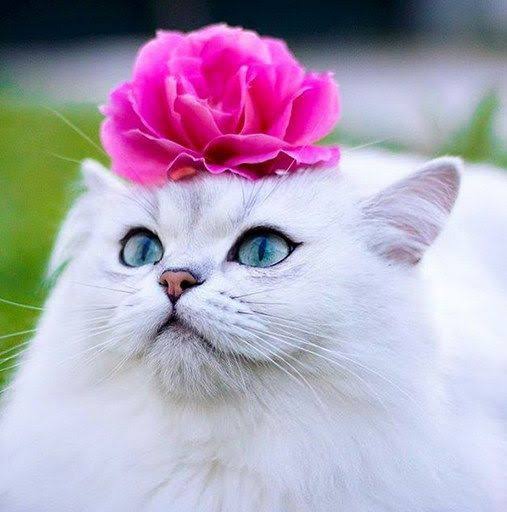
- Poor dental hygiene leading to plaque and tartar buildup
- Viral infections such as FIV (Feline Immunodeficiency Virus) and FeLV (Feline Leukemia Virus)
- Autoimmune diseases
- Dietary deficiencies
- Genetic predisposition in some breeds
- Chronic inflammation due to underlying health conditions
- Trauma or injury to the gums
- Profuse salivation;
- Swelling of the gums, their redness. This is especially evident at the site of compounds of the tooth and gum;
- Unpleasant smell from the mouth;
- Bleeding gums, increasing by touch or light pressure;
- Lack of appetite. More specifically, the pet is hungry, appetite is not lost, but a strong pain in the mouth does not let pet to eat the food.
For the diagnosis of "dental gingivitis" or "gingivitis," the veterinarian will examine the cat's oral cavity, focusing on:
- The presence of plaque
- Inflammation or redness in the gums
- The presence or absence of odor from the mouth
To confirm the diagnosis of "Plasmacytic-Lymphocytic Hepatitis," the cat should undergo a biopsy.
Treatment of Gingivitis in Cats
- Antibiotics are prescribed to reduce inflammation and eliminate infection. They can be used both topically and in tablet form.
- Immunomodulators are used to enhance immunity; they are applied to the tip of the cat’s nose for the cat to lick.
- Removing plaque that forms on the jaws of cats. Only a qualified veterinarian can perform this procedure.
- Anti-inflammatory drugs help fight the infection.
Treatment Methods for Gingivitis in Cats
| Method | How It Works | Pros | Cons |
|---|---|---|---|
| Regular Brushing | Removes plaque and prevents tartar buildup | Effective prevention, inexpensive | Requires patience and training |
| Dental Diet & Treats | Special food helps clean teeth while eating | Easy to use, supports oral health | May not be enough for severe cases |
| Antiseptic Mouth Rinses | Kills bacteria and reduces inflammation | Reduces bacterial infections | Some cats dislike the taste |
| Antibiotics | Eliminates bacterial infections causing inflammation | Effective for severe infections | Requires vet prescription, potential side effects |
| Tooth Extraction | Removes severely affected teeth to stop infection | Stops pain and infection spread | Expensive, requires anesthesia |
Comparison of Gingivitis Stages
| Stage | Symptoms | Severity | Recommended Treatment |
|---|---|---|---|
| Early Stage (Mild Gingivitis) | Mild redness along the gumline, slight plaque buildup | Mild | Regular brushing, dental treats, professional cleaning if needed |
| Moderate Stage | Increased gum redness, swelling, bad breath, occasional bleeding | Moderate | Professional dental cleaning, antiseptic mouth rinses, soft food |
| Severe Stage (Advanced Gingivitis) | Severe inflammation, ulcers, excessive drooling, difficulty eating | Severe | Antibiotics, anti-inflammatory medication, possible tooth extraction |
Dietary Recommendations for Cats with Gingivitis
A sick pet’s diet differs from its usual nutrition. The most important thing is that the food should be soft and warm. If your furry friend usually eats dry food, it should be soaked before serving. The menu should include pâtés and canned food (specialized veterinary diets) designed for animals with gum problems.
Fatty, fried, and salty foods, as well as cold or hot water, should be completely avoided. In fact, such products shouldn’t be part of a cat’s diet at all.
| Food Type | Benefits for Dental Health | Examples |
|---|---|---|
| Dry Food (Dental Formula) | Helps reduce plaque and tartar buildup by mechanical cleaning | Hill’s t/d, Royal Canin Dental, Purina Pro Plan Dental Health |
| Wet Food | Easier to chew for cats with gum inflammation | Royal Canin Veterinary Diet, Hill’s Prescription Diet a/d |
| Raw Diet (Soft Meats) | Gentle on gums and provides natural enzymes for oral health | Raw chicken, turkey, or rabbit (finely ground) |
| Dental Treats & Supplements | Reduces bacteria and freshens breath | Greenies, Virbac C.E.T. Chews, dental water additives |
